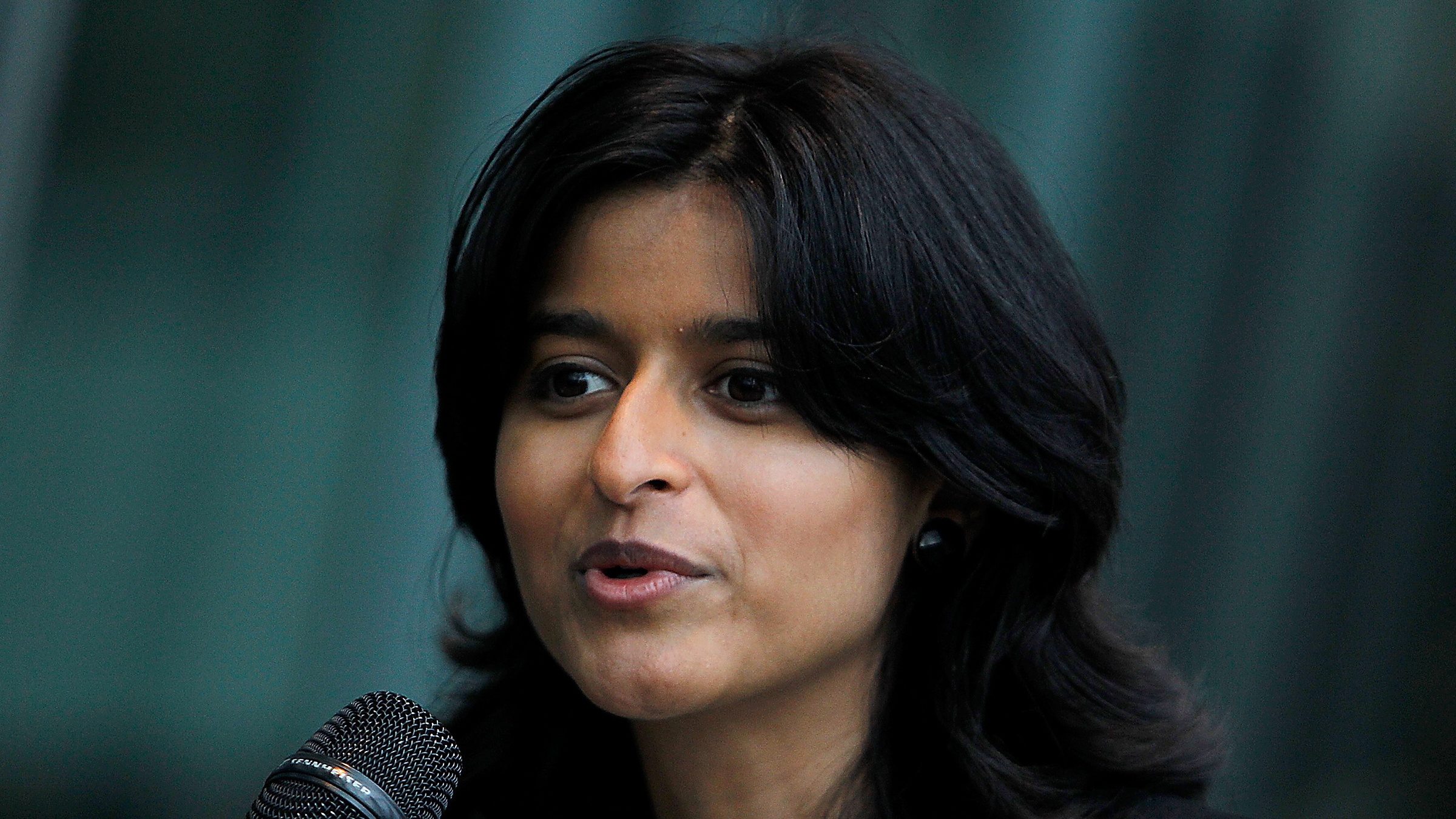Who is Munira Mirza: Boris Johnson’s controversial race inquiry pick
The Downing Street adviser has accused previous anti-racism probes of fostering ‘culture of grievance’

A free daily email with the biggest news stories of the day – and the best features from TheWeek.com
You are now subscribed
Your newsletter sign-up was successful
Critics are claiming that a new government commission on racial inequalities is “dead on arrival” amid reports that the inquiry is to be lead by a Downing Street adviser who has cast doubt on the existence of institutional racism.
According to The Guardian, Boris Johnson has chosen Munira Mirza, the head of the No. 10 policy unit, to oversee the new Commission on Race and Ethnic Disparities, which is being launched in the wake of global Black Lives Matter protests.
Who is Munira Mirza?
The Week
Escape your echo chamber. Get the facts behind the news, plus analysis from multiple perspectives.

Sign up for The Week's Free Newsletters
From our morning news briefing to a weekly Good News Newsletter, get the best of The Week delivered directly to your inbox.
From our morning news briefing to a weekly Good News Newsletter, get the best of The Week delivered directly to your inbox.
Mirza was born in Oldham, Greater Manchester, to parents of Pakistani origin and went on to read English literature at Oxford University.
After a stint at Policy Exchange, a Tory think-tank, she worked for Johnson during his tenure as London mayor, between 2008 and 2016. She initially acted as his director of arts, culture and the creative industries, before becoming his deputy mayor for education and culture, The Sun reports.
Johnson has described Mirza as his “nonsense detector”, and earlier this year included her in a list of “the five women who have influenced and inspired him the most”. The prime minister told Grazia magazine that she was “capable of being hip, cool, groovy and generally on trend”.
Despite her close ties to the Tory leader, Mirza started out as a supporter of the Left. She was a member of the Revolutionary Communist Party while studying at Oxford’s Mansfield College, Oxford and went on to contribute to the party’s magazine Living Marxism (now called Spiked).
A free daily email with the biggest news stories of the day – and the best features from TheWeek.com
However, she “got frustrated at what she saw as the narrow-mindedness of the Left, and embarked on the journey across the political spectrum”, says The Guardian’s political editor Heather Stewart.
Indeed, Mirza has become “an outspoken critic of anti-racism” and what she has described as “its culture of grievance”, the newspaper reports.
She was a vocal critic of David Lammy’s 2017 report on racial disparities in the criminal justice system, arguing in an article for The Spectator that in some ways people from BAME backgrounds had got “more favourable treatment compared with whites”.
And in a 2018 blogpost, she wrote that injustices were only treated seriously if there was a “social justice angle that can be divined (or manufactured)”.
–––––––––––––––––––––––––––––––For a round-up of the most important stories from around the world - and a concise, refreshing and balanced take on the week’s news agenda - try The Week magazine. Start your trial subscription today –––––––––––––––––––––––––––––––
And the reaction over her new role?
Labour’s shadow justice secretary David Lammy tweeted that Mirza’s appointment “further undermines [Boris Johnson’s] race commission”.
Lammy added: “My review was welcomed by all parties: Corbyn, Cameron and May. But Munira Mirza went out of her way to attack it. Johnson isn’t listening to #BlackLivesMatter. He’s trying to wage a culture war.”
Former Labour frontbencher Diane Abbott has warned that “a new race equalities commission led by Munira Mirza is dead on arrival”, PoliticsHome reports.
“She has never believed in institutional racism,” Abbott added.
The Institute of Race Relations think-tank has also voiced concern about Johnson’s choice. A spokesperson said: “Any enquiry into inequality has to acknowledge structural and systemic factors.
“It is difficult to have any confidence in policy recommendations from someone who denies the existence of the very structures that produce the social inequalities experienced by black communities.”
-
 Sepsis ‘breakthrough’: the world’s first targeted treatment?
Sepsis ‘breakthrough’: the world’s first targeted treatment?The Explainer New drug could reverse effects of sepsis, rather than trying to treat infection with antibiotics
-
 James Van Der Beek obituary: fresh-faced Dawson’s Creek star
James Van Der Beek obituary: fresh-faced Dawson’s Creek starIn The Spotlight Van Der Beek fronted one of the most successful teen dramas of the 90s – but his Dawson fame proved a double-edged sword
-
 Is Andrew’s arrest the end for the monarchy?
Is Andrew’s arrest the end for the monarchy?Today's Big Question The King has distanced the Royal Family from his disgraced brother but a ‘fit of revolutionary disgust’ could still wipe them out
-
 How corrupt is the UK?
How corrupt is the UK?The Explainer Decline in standards ‘risks becoming a defining feature of our political culture’ as Britain falls to lowest ever score on global index
-
 ‘The West needs people’
‘The West needs people’Instant Opinion Opinion, comment and editorials of the day
-
 The high street: Britain’s next political battleground?
The high street: Britain’s next political battleground?In the Spotlight Mass closure of shops and influx of organised crime are fuelling voter anger, and offer an opening for Reform UK
-
 Is a Reform-Tory pact becoming more likely?
Is a Reform-Tory pact becoming more likely?Today’s Big Question Nigel Farage’s party is ahead in the polls but still falls well short of a Commons majority, while Conservatives are still losing MPs to Reform
-
 Asylum hotels: everything you need to know
Asylum hotels: everything you need to knowThe Explainer Using hotels to house asylum seekers has proved extremely unpopular. Why, and what can the government do about it?
-
 Should TV adverts reflect the nation?
Should TV adverts reflect the nation?Talking Point Reform MP Sarah Pochin’s controversial comments on black and Asian actors in adverts expose a real divide on race and representation
-
 Taking the low road: why the SNP is still standing strong
Taking the low road: why the SNP is still standing strongTalking Point Party is on track for a fifth consecutive victory in May’s Holyrood election, despite controversies and plummeting support
-
 Behind the ‘Boriswave’: Farage plans to scrap indefinite leave to remain
Behind the ‘Boriswave’: Farage plans to scrap indefinite leave to remainThe Explainer The problem of the post-Brexit immigration surge – and Reform’s radical solution